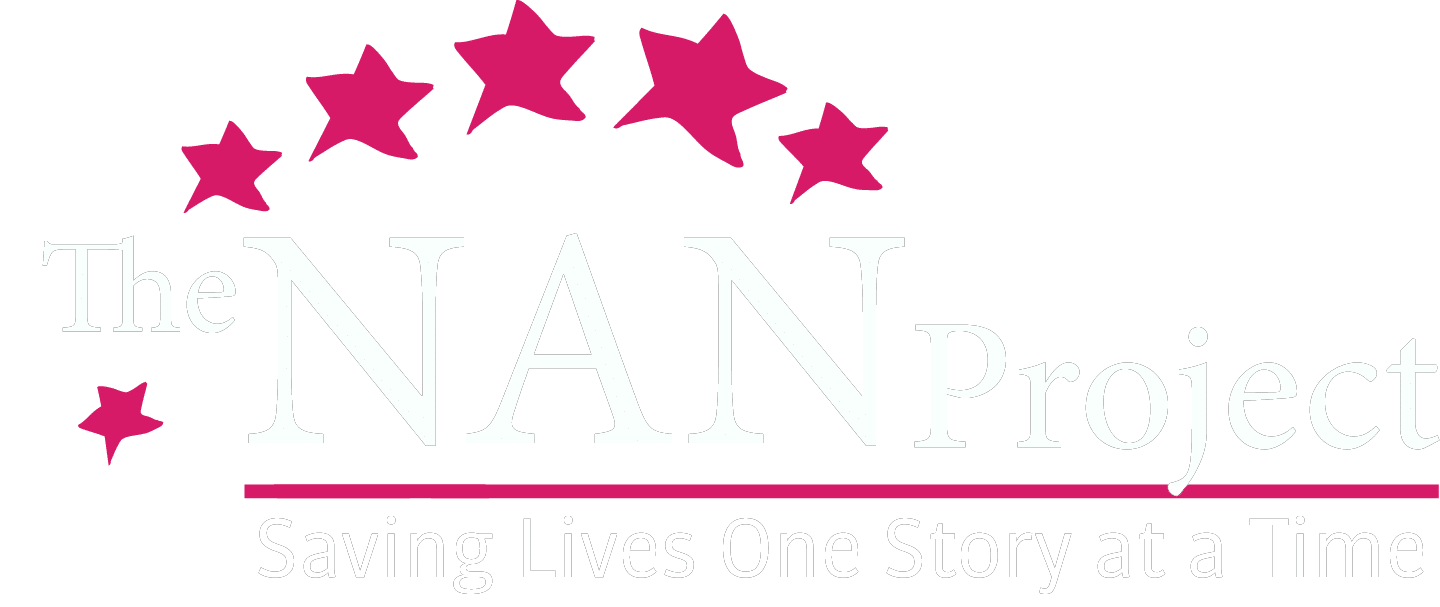What We Do
Our Mission:The NAN Project works to promote mental health awareness and suicide prevention programs for young people, using a peer-to-peer model.
- Acknowledging that mental illness is a very serious problem;
- Accepting mental health challenges as illnesses of the brain, similar to physical ailments, which can be treated;
- Providing access to treatment for all families and their children.

The NAN Project’s approach to mental health awareness and suicide prevention has three primary areas of focus:
- The use of a peer-to-peer model to open up the conversation concerning young adult mental health;
- Professional development workshops for educators and community Gatekeepers;
- Speaking events in the community for parents and stakeholders.
If you need help and want to talk to someone, call:
Suicide Prevention Lifeline1-800-273-TALK (8255)
www.suicidepreventionlifeline.org
For the Crisis Text Line, text “Listen” to 741-741
For the Samaritans, Call or Text (877)870-4673
For immediate crisis evaluation call the Emergency Services Program / Mobile Crisis Intervention at 1-877-382-1609 & enter your zip code; you will get the phone number of the closest ESP/MCI that serves you.
A Peer-to-Peer Model
On a typical presentation day, our Peer Mentors will tell their stories in a classroom setting, and lead a discussion on mental health. As well as questions and answers about each Peer Mentor’s individual story, typical topics include the difference between sadness and depression, identifying trusted adults and supports within the community, or asking students to share positive coping skills.
 Peer Mentors lead discussion at Stoneham High School.
Peer Mentors lead discussion at Stoneham High School.
 Students in Malden create T-Shirt campaign promoting mental health awareness.
Students in Malden create T-Shirt campaign promoting mental health awareness.
Our involvement does not end when we leave the school building on presentation day. Our hope in every school is to establish Peer Leadership teams that, with our continued support, can identify ways of promoting mental health that make the most sense in their school. Students might suggest a Wellness Week, a poster campaign, or a Paint Night, and we will support them in whatever ways we can.
Professional Development
Before speaking to students, we want to help the school community understand how they can approach mental health challenges in their roles as educators, nurses, parents, and administration. Several NAN Project staff are trained facilitators in Question, Persuade, Refer (QPR) or ‘SOS’ Signs of Suicide which are both evidence based, entry level trainings that cover suicide prevention.
Our Peer Mentors offer presentation to staff for greater understanding of what the Peer-to-Peer model looks like, and how The Nan Project can work with their organization.
 Beth Pinals instructs Everett High School faculty.
Beth Pinals instructs Everett High School faculty.
Community Speakers
 Jon Mattelman presents to parents in Westfield.
Jon Mattelman presents to parents in Westfield.
Speakers talk about stressors of teenage mind, their own lived experience, and can provide a comprehensive discussion of the risk factors and signs that someone may be struggling.
These events are about normalizing the conversation around mental health challenges and educating the community about supports that are available.
We encourage all stakeholders from across the community such as parents, faculty, and first responders to get involved. Getting this cross section of your community to the table, and raising awareness is a key step in destigmatizing mental health and suicide prevention.

